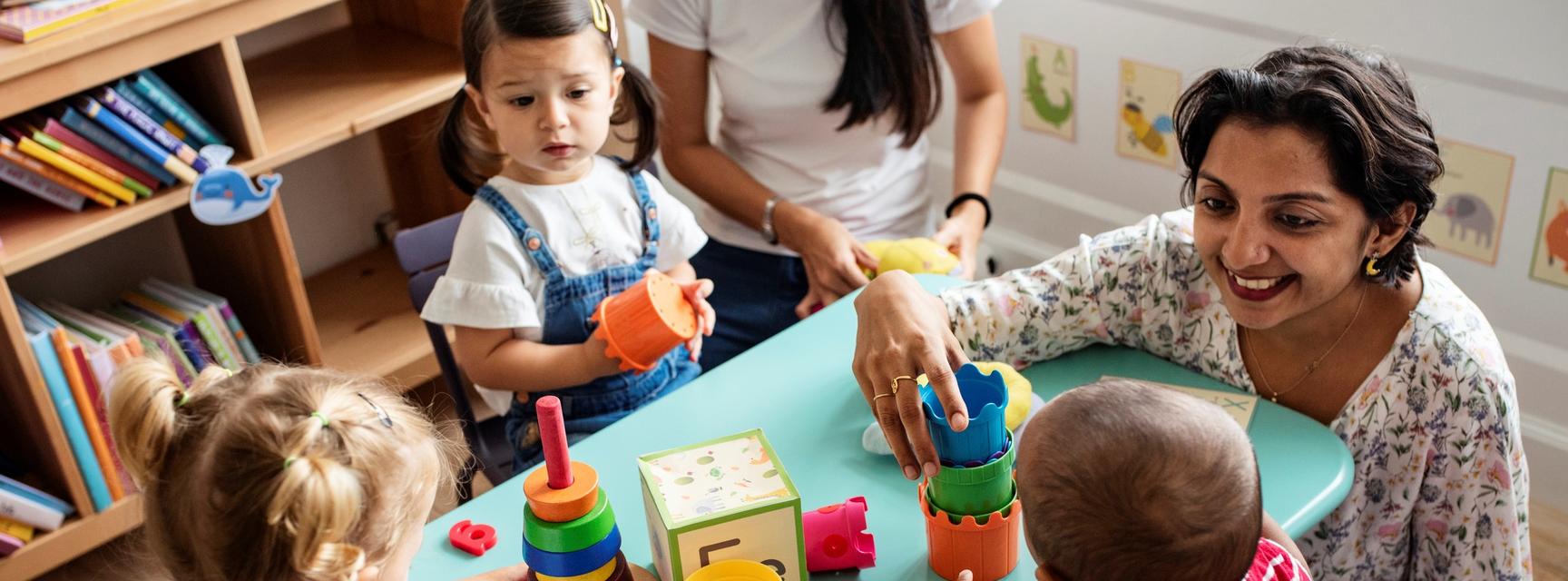Rochdale
Information use project (IUP) specification
The focus of Rochdale’s IUP is ‘school readiness’. The local authority is concerned with improving the quality – including the integration of voice – and accessibility of information that is collected across agencies to inform neighbourhood-level planning and commissioning of Early Years services to meet children’s needs.
The local authority is divided into five neighbourhoods, which are aligned with its Family Hub service offer – for children 0–19 years, or 0–25 years for individuals with special educational needs and disabilities (SEND) – and neighbourhood board governance structure. Each neighbourhood has its own priorities, with considerable contrasts and diversity within and between neighbourhoods in terms of the socioeconomic status, ethnicity, and stability or transience of their communities.
Amid this diversity, our Rochdale site partners are particularly concerned to ensure that the Early Years information they use includes the voices of parents and carers who are seldom heard. These are people who, for a variety of reasons, rarely access Early Years services or participate in parent panels and participatory forums that currently exist. As a result, their children’s needs are likely to be less well understood and may be less well met.
How the project has evolved and where we are now
Rochdale’s IUP builds upon earlier work with children and families in their communities. This includes work with Behavioural Insights to understand the barriers hindering hidden communities’ uptake of Early Years provision for two-year-olds. Another example is Rochdale North’s participation in the Greater Manchester Early Family Help Trailblazer Programme, which focused on bringing multiple voices (including children’s and families’) into planning community-led Early Family Help at neighbourhood level. In both of these projects, there was a focus on the stories behind the data.
Our plans for the coming year
The specific focus of the IUP is to undertake proactive work to engage with seldom heard families in order to co-develop a set of indicators that are as yet missing from school readiness assessments. These indicators would better encapsulate these families’ voices about their children’s Early Years needs and circumstances. They will be incorporated into a measurement framework that will be trialled and reviewed with parents, carers and practitioners (and further refined, within the CIP period if possible, or afterwards if not). In the longer term, Rochdale intends that neighbourhood boards will have access to clear information about school readiness that better captures the voices of parents, including those who are seldom heard. This should afford more nuanced, contextualised understanding and service planning, to meet the Early Years needs of the diverse children and families in Rochdale’s communities.
Our team
The research team works flexibly across sites however Professor Leon Feinstein, Dr Ellie Suh, and Dr Priya Tah are key members of the team working with Rochdale. In the site, key members include Amanda Highland-Partington, Julia Henry, Cheryl Boardman, Rachael El Weshahi, Louise Burke and several others from the Rochdale early years services. Engaged in the project from the Greater Manchester Combined Authority are Miriam Loxham and David Ottiwell.



